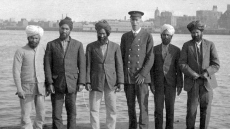“There is no denying that there is evil in this world but the light will always conquer the darkness.”
A gentle spark that once emerged in the rural villages of India, has now illuminated lands afar, with its beaming light of hope and happiness. The Festival of Lights, also known as Diwali, is an annual festival commemorating the victory of light over darkness. Worldwide, the two major religions that participate in this festival include Sikhi and Hinduism. The two religions may have contrasting versions of Diwali, but ultimately they both emphasis on compassion and devotion.
In Sikhi, the festival of lights is commonly known as Bandi Chhor Diwas which translates to Prisoner Release Day. The Sikh’s sixth Guru ji’s release among 52 other prisoners led to this day of celebration. The growth of Sikhi and its followers formed envious feelings in a Mughal emperor Jahangir. In the fear of losing disciples to the Sikh Guru, the emperor ordered Guru Hargobind Sahib ji to be detained in the Gwalior Fort in 1612 AD. On entering the fort, Guru ji was welcomed by 52 Hindu Kings who had been stripped from their kingdoms and imprisoned.
As the Almighty, Guru Sahib ji gave hope to the kings by engaging them in meditation. When the Mughal emperor witnessed the popularity Guru ji gained in the prison, he ordered for his release. However, Guru Hargobind Sahib ji refused to leave until all 52 innocent prisoners were set free. The emperor, trying to deceive the Guru, proposed the release of prisoners that could hold onto Guru ji’s clothing. Accepting the challenge, Guru ji ordered a special cloak with 52 tassels, one for each of the prisoners.

On the day of Diwali, Guru Sahib ji, along with the 52 Hindu kings were released from Gwalior Fort. Hereafter, Guru Sahib ji was known as the ‘Liberator’ or ‘Freedom Provider’. After their release, Guru ji and the kings went back to Harmandir Sahib, where they were received with the utmost respect. In their arrival, an immense celebration was held. The temple was lit with lamps (divas), fireworks illuminated the sky as the holy congregation sang the hymns of God. Presently, Sikh continue to light the temples with divas and sing holy hymns of God on Bandi Chhor Diwas.
In comparison, Diwali symbolizes good over evil, and knowledge over ignorance in Hinduism. Diwali lasts for five days where Hindus decorate their homes, go shopping, perform religious rituals and share gifts with their family and friends. In Hinduism, Diwali is a time of receiving good omen and wealth from the Goddess Lakshmi. Houses are lit to welcome the Goddess at night, where she showers them with love and prosperity. In addition, the Hindu god Ram and his wife, Sita, returned home on this festive night, after a 14 year exile in the jungle. Upon their return, people held a grand festival with fireworks, a feast, and exquisite gifts. Currently, this celebration still continues every autumn in the Northern hemisphere.
Nowadays, Diwali is an official holiday in Fiji, Guyana, India, Malaysia, Mauritius, Myanmar, Nepal, Singapore, Sri Lanka, Suriname, and Trinidad and Tobago. This festive event embraces individuals in a time of high spirits and endless prosperity. This Diwali, may your inner light glow and bring light all around. Happy Diwali!





